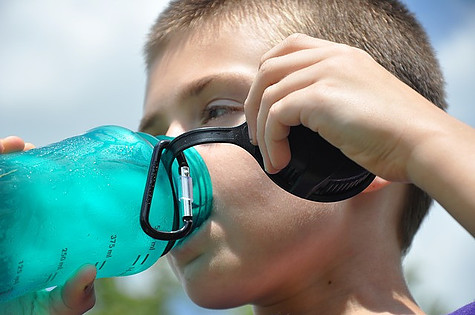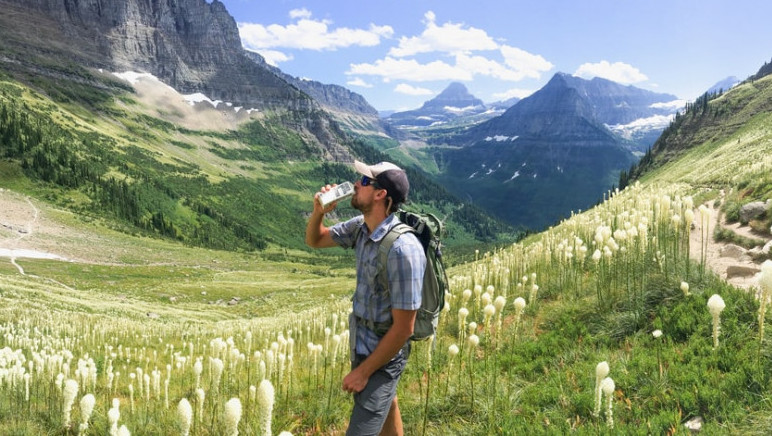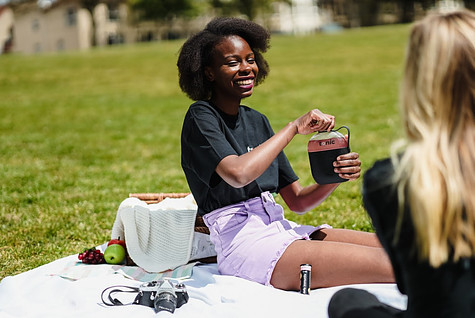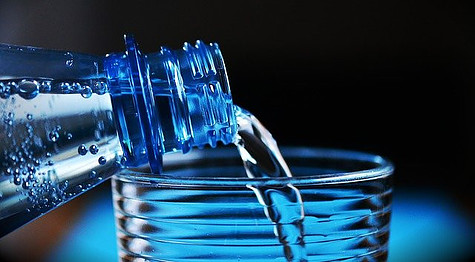Running out of water while on a camping trip can cause some serious problems. Not only can it make things inconvenient, it can also lead to dehydration as well as many other serious health issues. You can always make safe drinking water, but for today we’ll focus on planning ahead and bringing enough. Many look for summer hydration safety tips as most believe you can only dehydrate in the summer. Unfortunately, that is not true and we should also focus on winter hydration safety tips as well.
If you asked yourself,” How much water should I drink everyday?”, do you think you could come up with a definite answer? Unless you are in the know with health and fitness, likely not. The things is, there is no certain formula that fits everyone. We’ll discuss some general guidelines to follow.
What is the Importance of Water in our Body
A human body is made up of approximately 60% water. Stating that your body needs water to function is an understatement. Every cell and organ in your body has to have water to function properly. Think of water as the bodies way of lubricating; motor oil for your engine or WD-40 for that squeaky hinge. Water, for example:
- Regulates body temperature through perspiration.
- Lubricates joints.
- Protects tissues and organs.
- Flushes out waste, protecting your liver and kidneys.
- Helps dissolve nutrients and carries throughout the body.
How Much Water Do I Need Per Day?
During the course of a day, your body will use a variable amount of water. This changes with numerous factors such as basic bodily functions, but can fluctuate drastically depending on temperature, physical activity, illnesses, and diet. Likely you have been told or heard of the 8×8 Rule. This recommendation of drinking an eight ounce glass of water, eight times per day is fairly common. This equates to 64 ounces or .5 gallons.
However, The U.S. National Academies of Sciences, Engineering, and Medicine determined that an adequate daily fluid intake is approximately 125 ounces for men and 91 ounces for women. The reason for this large difference is primarily due to the latter calculating fluids in general, rather than just water intake. This includes water, other beverages, as well as fluids from food.
Knowing your body and your activities should give you an idea of what your body will need. If you are planning a trip, I would plan for 1 gallon of drinking water per day, per adult. For children, 1/2 gallon should suffice. This does not include water for washing hands or dishes, showers, etc.
NOTE: If you are pregnant or nursing, your fluid intake should increase, so plan for that.

Are There Other Ways to Hydrate?
Yes, you do not need or want to rely on water alone for hydration. Look for foods that hydrate you to supplement your water intake. Strawberries, Cucumbers, Lettuce, Soups, and Tomatoes all have a water content above 90% which means they are great for hydration. There are also numerous other options to choose from that are high in water content.
In addition to foods, there are many other drink options such as skim milk, juice and teas. While sodas can also contribute to your hydration, it is important to watch the amount of sugary fluids you are taking in. Despite what some adults believe, drinking alcoholic beverages do more harm than good for hydration. Alcohol is a diuretic, which means you’ll discard more than you retain. We all know what happens when you “break the seal”! Coffee is another example of a diuretic, although it is more mild.
If you are supplementing by electrolyte drinks such as Gatorade, Powerade, etc., it is a good rule of thumb to follow the 3:1 ratio. Three glasses of water to one glass of electrolyte drink.
Am I Drinking Enough?
Your fluid intake is probably adequate if:
- You don’t feel thirsty often
- Your urine is clear and pale
- You discard fluids regularly, at least four times daily
Your fluid intake is probably lacking if:
- You are regularly thirsty
- Your urine is darker yellow in color with strong odor
- Lack of need to discard fluids for prolonged periods
Becoming dehydrated can be a serious issue that could result in needing to seek medical attention. It is extremely important to monitor your symptoms and begin re hydrating immediately if you think dehydration is affecting you.
Please watch for the following symptoms as well as those mentioned above:
- Dizzy or Lightheaded
- Fatigue
- Headaches
- Dry mouth, lips, or eyes
Hazards Associated With Too Much Water
For the majority of us healthy adults, there is not much to worry about it this area. However, overhydration can occur. While this is mostly seen with athletes, military and others who are practicing forced hydration, it can also happen to others. Overhydration occurs when your body can’t rid excess fluids quick enough. This can cause sodium levels to dissipate resulting in Hyponatremia which can have serious side effects. Overhydration can also lead to High Blood Pressure or Low Heart Rate.
Conclusion
Many of us may go through life and never experience dehydration or overhydration unless we are athletes or contract an illness. Most of us go on with our lives, drink when we are thirsty, don’t when we’re not. Being in the backwoods when you experience this is not the time. Be sure to take enough fluids and food when you go on an outing. You can always bring back what you don’t use.
If you found this information useful or have some tips that you use, please leave us a comment and let us know. If you’d like to keep up with us here and what we’re posting, subscribe to our weekly newsletter.
Keep Winning Outdoors!



